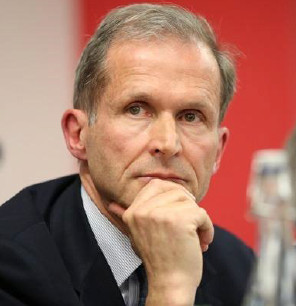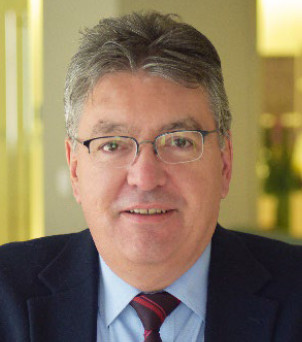Economic and Social Transformation: A Cross-Regional Perspective
Europe, Latin America and the Arab world
March 31, 2021
What can policymakers learn from previous key economic, political, and social transformations on how to move forward with reforms to support a new social contract? Drawing on the experiences from the former soviet economies, the Arab Spring, and current constitutional reforms in Latin America, the panel discussed how the pandemic can serve as an opportunity for countries to overhaul their economies.
Key Points:
- Reasons for change: Muasher noted that the root causes for big societal changes are the lack of good governance and economic opportunity. Cárdenas highlighted the sharp reversal in recent poverty and inequality gains. Shafik’s stressed that current social contracts do not provide security nor equal opportunities and that massive talent is wasted around the world.
- Successful transformations: Georgieva observed that change/transformation brings benefits and opportunities, but it needs to be accompanied with policies that support those negatively affected. Shafik noted three elements of a successful transformation: (i) political change (as opposed to political rebranding), (ii) institutional reform toward more effectiveness, and (iii) new ideas. For Berglöf, economic and social transformation can only come together with political transformation, while Muasher emphasized the need for a new social contract. Cárdenas observed the need to prioritize among different objectives, focusing on social cohesion objectives that are accompanied by increases in institutional capacity.
- Fund’s role: Cárdenas called on the Fund to inform about the economic tradeoffs of different change options. Muasher stressed the need to talk more to civil society. Shafik added that the Fund needs to show countries the economic costs of unequal societies. Berglöf saw a role for the Fund in supporting conflict-affected, vulnerable, island, and low-income economies.
Quotes:
“Transformations are desirable when they lead to good policies, but they are complex, and they can be painful.” Kristalina Georgieva
“We have absolutely an obligation to look at what policies can do to bring us to a more inclusive, greener, resilient, digital world with as little divergence as possible” Kristalina Georgieva
Contributor: Rodolfo Dall’Orto
What cross-regional perspectives can be gathered from previous economic, political, and social transformations, such as the fall of the Berlin Wall, the aftermath of the Arab Uprisings, and recent protests in Latin America? What can policymakers learn from these events on how to move forward with reforms to support a new social contract?
Following opening remarks by IMF Managing Director Kristalina Georgieva, join the IMF’s Jihad Azour, Alejandro Werner, and a distinguished panel of experts from the Middle East, Latin America, and Europe for a discussion on how the pandemic can serve as an opportunity for countries to overhaul their economies, making them smarter, fairer, greener and more conducive to job creation.
Opening Remarks:
Kristalina Georgieva, Managing Director of the International Monetary Fund
Speakers:
Jihad Azour, Director, Middle East and Central Asia Department, IMF (Moderator)
-
Erik Berglöf, Chief Economist at the Asian Infrastructure Investment Bank
-
Mauricio Cárdenas, a Visiting Senior Research Scholar and a Visiting Professor at Columbia University SIPA
-
Marwan Muasher, Vice President for Studies at the Carnegie Endowment for International Peace
-
Minouche Shafik, Director of the London School of Economics and Political Science
Concluding Remarks:
Alejandro Werner, Director, Western Hemisphere Department, IMF



 Erik Berglöf is the Chief economist at the Asian Infrastructure Investment Bank. Prior to joining AIIB in September 2020, he was Director of the Institute of Global Affairs, London School of Economics, and Chief Economist of the European Bank for Reconstruction and Development from 2006 to 2015, where he was part of creating and co-led the Vienna Initiative, a European crisis response team credited with mitigating the impact of the 2008 Global Financial Crisis. He is an expert in transition economics and institutional transformation through private sector development. He holds a PhD in Financial Economics and an MA in Business and Economics, both from the Stockholm School of Economics. Mr. Berglöf is from Sweden.
Erik Berglöf is the Chief economist at the Asian Infrastructure Investment Bank. Prior to joining AIIB in September 2020, he was Director of the Institute of Global Affairs, London School of Economics, and Chief Economist of the European Bank for Reconstruction and Development from 2006 to 2015, where he was part of creating and co-led the Vienna Initiative, a European crisis response team credited with mitigating the impact of the 2008 Global Financial Crisis. He is an expert in transition economics and institutional transformation through private sector development. He holds a PhD in Financial Economics and an MA in Business and Economics, both from the Stockholm School of Economics. Mr. Berglöf is from Sweden.
 Mauricio Cárdenas is a Visiting Senior Research Scholar and a Visiting Professor at Columbia University SIPA. Mr. Cárdenas served as Colombia’s Minister of Finance in 2012-2018 and has been a minister in four other portfolios: economic development, transport, planning, mines and energy. He has been twice Executive Director of Fedesarrollo and served as Director of the Latin America Initiative at the Brookings Institution and as President of LACEA. Mr. Cárdenas holds a Ph.D. in Economics from the University of California, Berkeley.
Mauricio Cárdenas is a Visiting Senior Research Scholar and a Visiting Professor at Columbia University SIPA. Mr. Cárdenas served as Colombia’s Minister of Finance in 2012-2018 and has been a minister in four other portfolios: economic development, transport, planning, mines and energy. He has been twice Executive Director of Fedesarrollo and served as Director of the Latin America Initiative at the Brookings Institution and as President of LACEA. Mr. Cárdenas holds a Ph.D. in Economics from the University of California, Berkeley.
 Marwan Muasher serves as vice president for studies at the Carnegie Endowment for International Peace, where he oversees research on the Middle East. He is a Jordanian diplomat and politician who was Jordan's foreign minister from 2002 to 2004 and its deputy prime minister during 2004 and 2005. He was Jordan's first ambassador to Israel and former ambassador to the United States.
Marwan Muasher serves as vice president for studies at the Carnegie Endowment for International Peace, where he oversees research on the Middle East. He is a Jordanian diplomat and politician who was Jordan's foreign minister from 2002 to 2004 and its deputy prime minister during 2004 and 2005. He was Jordan's first ambassador to Israel and former ambassador to the United States. Minouche Shafik is the Director of the London School of Economics. Prior to this, she has previously worked in senior positions at the World Bank, the Department for International Development, and the IMF before becoming Deputy Governor of the Bank of England in 2014. She was made a Dame Commander of the British Empire in the Queen's New Year's Honours list in 2015.
Minouche Shafik is the Director of the London School of Economics. Prior to this, she has previously worked in senior positions at the World Bank, the Department for International Development, and the IMF before becoming Deputy Governor of the Bank of England in 2014. She was made a Dame Commander of the British Empire in the Queen's New Year's Honours list in 2015.